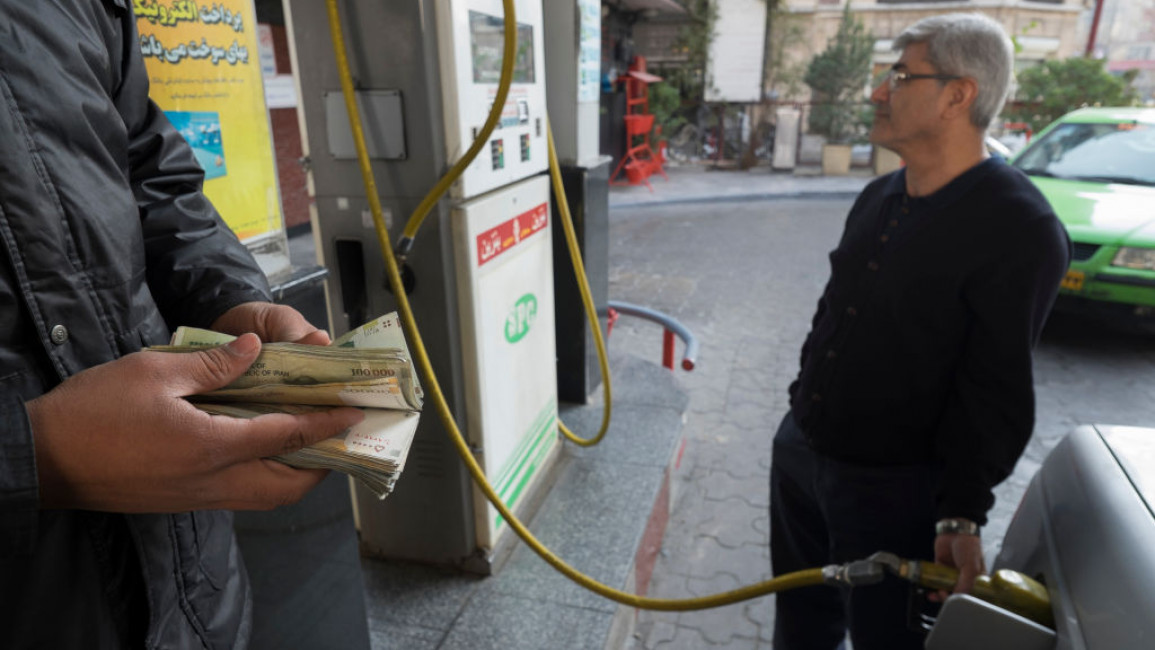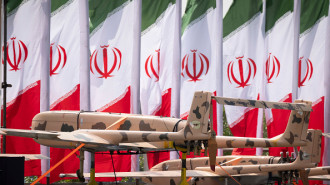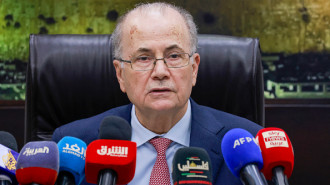Gas-rich Iran struggles with gas shortages, industries shutting down
"Inshallah, God will let us remain alive and see what a difficult winter we have ahead of us in the world; specifically for the countries importing energy; specifically in Europe," said confidently Javad Owji, Iran's oil minister, in a televised interview in the late summer.
A few months later, on a snowy day in Tehran, with an apologetic tone, his remarks were very different when he stressed: "I swear to God, I never set the temperature of my home higher than 21 or 22 [celsius], and as soon as I enter the home, I put on warm clothes and socks, my family confirms this. So we should all do that."
The stark contrast between what he said in Tehran's hot summer and cold winter caused mockery in Faris media as the country encounters severe gas shortages. The economic website, Tejarat News, criticised the government's policies under the headline: "cold winter inside oil minister's home; does Javad Owji live in Europe?"
Owji's pledge to put on warm clothes inside the homes did not assist him in preventing gas shortage in the capital Tehran. Since 14 January, the schools and universities were closed in Tehran for one week, while some banks and public offices were also shut to save gas and electricity.
After Russia, Iran is the world's second-largest owner of natural gas reserves. But a lack of long-term development plans, systematic corruption, and crippling international sanctions have pushed the country into a severe gas shortage.
Paralysed industries
Reports from cities far from the capital demonstrated a more critical situation. From the city of Torbate-Jam, about 1,000 kilometres east of Tehran, a video went viral showing people trying to bring down the gate of the Red Crescent organization to receive heaters and blankets due to low gas supplies.
However, this winter's energy crisis began before a strong cold wave hit Iran in mid-January. In November, several factories in industrial parks received warnings that the national Gas Company would provide energy to those industries only on certain days of the week.
"Even before the shortages in Tehran, we were forced to work only three days a week," told The New Arab, the executive director of a factory in Qazvin, an industrial city about 150 kilometres northwest of Tehran.
"A week before shutting down the schools in Tehran, we had to close because the provincial supplier cut the gas," he added.
The quasi-public steelmakers had no choice other than to reduce their manufacturing, which negatively impacted the country's export income and the price of imported steel to the United Arab Emirates and Oman.
Bahador Ehramian, a board member of Iran's steel manufacturers, said the country's monthly steel production was reduced to US$150,000 in January. The monthly value of Iran's steel production before the winter was about US$1.5 million.
The cement industry was another section of Iran's economy severely harmed by the shortages. In January, the authorities stopped supplying gas to 54 cement factories, followed by a 50 per cent increase in the prices of this product.
Air pollution caused by gas shortage
However, to control the increasing prices of cement, President Ebrahim Raisi's government permitted the producers to use mazout (diesel), a low-quality heavy fuel oil with an adverse environmental impact.
Burning diesel in power plants and cement factories helped the government to prevent the gas shortages in Tehran from worsening, but it came with a high price that again resulted in shutting down schools. During the last week of January, schools in Tehran were closed due to the air pollution caused by Mazout.
Iran's national centre that monitors air quality reported that since the beginning of winter, the pollutant index in most major cities was over 100, two times higher than the maximum level advised by the World Health Organisation.
In the absence of transparent data, conflicting numbers were reported for deaths caused by air pollution in the country. The figures announced by one of the officials put the annual number of deaths related to toxic smog at 20,800 persons and over US$8 billion in damage to the country's already troubled economy.
The rising number of deaths and huge damages caused by air pollution has become another source of Iranians' dissatisfaction with the ruling elite. Recently, some officials also voiced their anger about this environmental crisis.
Jafar Tashakor Hashemi, a member of Tehran's city council, was one of the officials who criticized Raisi's administration for its failure to find a solution to Tehran's air pollution. In an interview with the ISNA news agency, he accused the government of inaction to solve the issue.
"What the officials have been doing has one obvious message to people, which is: it's how it is, we don't care even if you die," he was quoted as saying.



